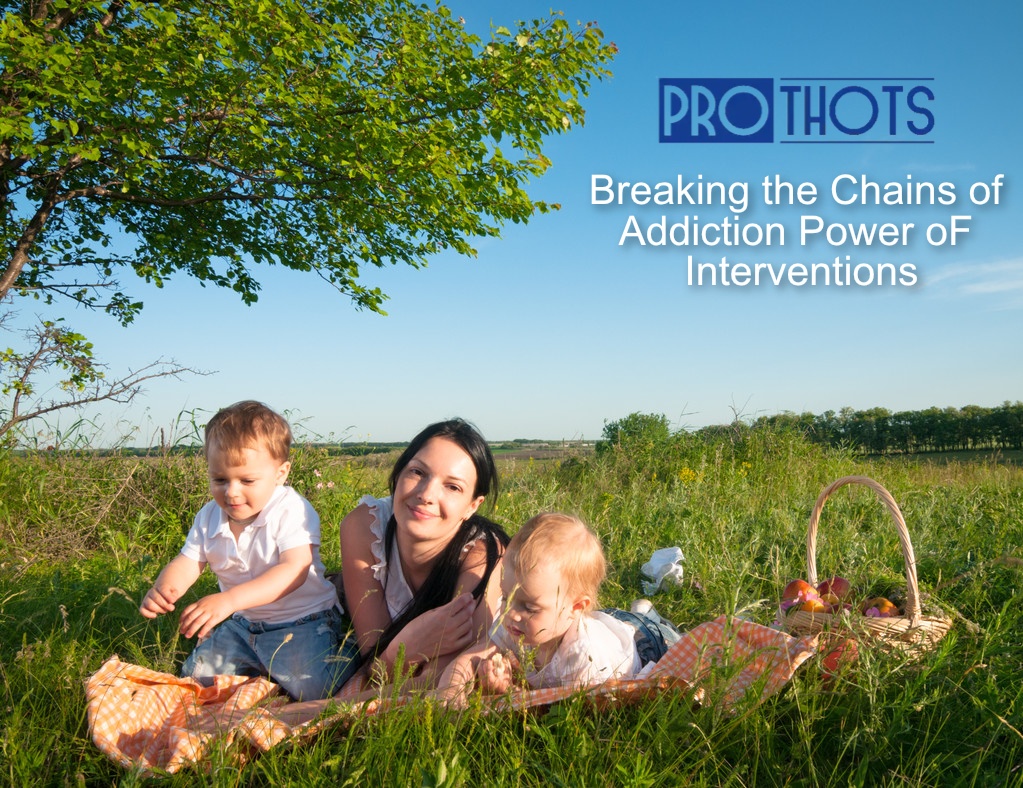Blog
Breaking the Chains of Addiction Power oF Interventions

Addiction is a relentless tormentor, gripping individuals and shattering families. Understanding its intricate web is the first step in dismantling its hold. Professional interventions bridge the gap between addiction and recovery, offering a lifeline to those ensnared. These critical, structured conversations can be turning points, prompting the realization that help is not only necessary but also available. This article delves into the profound impact interventions can have on the journey toward sobriety. Below, we explore the essential elements of successful interventions and how they can catalyze the healing process.
The Role of Professional Interventionists in Breaking the Addiction Cycle

Professional interventionists are the linchpins in the complex machinery of an intervention. With their extensive training and experience, they navigate the emotionally charged territory that often accompanies these meetings. These specialists bring a wealth of knowledge to the intervention, often identifying underlying issues such as mental health conditions that contribute to the addictive behavior.
Their role extends beyond mere facilitation. Interventionists structure the conversation to prevent it from devolving into a confrontational debacle. They establish ground rules and ensure that each person’s voice is heard, all the while redirecting the focus to the addict’s need for treatment. It’s a delicate balance, leveraging empathy with straightforward talk.
Crucially, a professional interventionist brings an objective perspective to an emotionally fraught situation. They stand outside the family dynamic, offering an impartial stance that encourages trust and openness from the addict. For those seeking professional support, visiting resources like https://southfloridaintervention.com/ can provide useful information and assistance in organizing an intervention.
Planning and Executing an Effective Intervention
An intervention’s success often hinges on the meticulous planning that precedes it. It requires strategic thinking and preparation—a well-organized plan of action that contemplates various responses from the addict. Choosing the right time and place, gathering the right people, and even rehearsing the conversation can all contribute to a more effective intervention.
Central to this planning process is the creation of impact statements by each participant, a personal account of how the addiction has affected their lives. These narratives are crafted to be non-accusatory yet poignant, hitting the precise emotional notes necessary to penetrate the wall of denial. They must convey love and support, but also the reality of the pain that the addiction has wrought.
Execution of the plan is just as crucial as the framework. It’s about setting the tone the moment the individual walks into the room—the assurance that this is not an ambush but rather an offer of help. It’s about each participant delivering their message with clarity and compassion while standing firm in the face of potential backlash.
Post Intervention Strategies Ensuring Long Term Recovery

Following an intervention, the journey toward long-term recovery begins, and it demands a robust, comprehensive strategy. This phase is about constructing a supportive network and engaging in ongoing treatment that aligns with the individual’s specific needs. Recovery is rarely a linear process; it’s paved with challenges that require continual reinforcement of the decision to remain sober.
A critical component of post-intervention planning involves aftercare programs. These may include outpatient therapy, support groups, and sober living arrangements. Integrating these services fosters a structured environment conducive to recovery and provides the accountability needed to maintain sobriety.
Family and friends also play a vital role in the post-intervention stage, offering a foundation of emotional support. Their engagement in family therapy can repair damaged relationships and build a household dynamic that promotes healthy, substance-free living. Education about addiction and relapse prevention strategies fortifies this support system.
Tips for Handling Denial and Reluctance in Addicts
Denial and reluctance are formidable barriers to the treatment of addiction. They represent the addict’s reflexive defense mechanisms that protect their substance use. Overcoming this resistance is an art form, requiring a nuanced approach that invites the addict to see the reality of their situation without feeling attacked.
An effective tip is to focus on the facts and emotions without embellishment or moral judgment. Keep the conversation grounded in specific examples of how the addiction has been detrimental, thereby making the impact tangible. Empathy goes a long way, assuring the addict that they are understood and not alone in their struggles.
Overall, interventions can be the conduit for transformation in the lives of those battling addiction, laying the groundwork for recovery and healing. By utilizing professional interventionists, preparing thoroughly, and approaching resistance with understanding, families can offer their loved ones a vital chance at a newfound life free from the grips of addiction.
